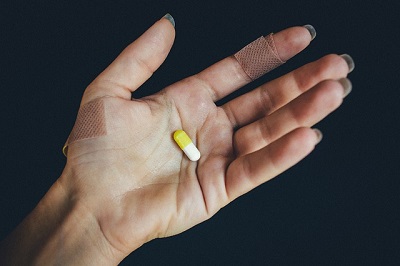Will Symptoms Alleviate During Medication for Prostatitis?
Prostatitis is a common disease among adult men with a high incidence rate. For patients with prostatitis, medication treatment is a common approach. However, whether symptoms will alleviate during medication is a common concern among patients.

The medications vary for different types of prostatitis:
1. Antibiotics
Doctors will select sensitive antibiotics for treatment based on possible pathogenic bacteria and drug sensitivity test results. Antibiotics can effectively kill bacteria, alleviate inflammatory reactions, and alleviate symptoms when used correctly and promptly.
2. Alpha-blockers
These drugs can relax the smooth muscles of the prostate and bladder and improve lower urinary tract symptoms such as frequent urination, urgency, and pain. Common drugs include tamsulosin and doxazosin.
3. Non-steroidal anti-inflammatory drugs (NSAIDs)
It is mainly used to relieve pain and discomfort caused by prostatitis. By inhibiting the synthesis of prostaglandins, it exerts anti-inflammatory and analgesic effects.
4. Traditional Chinese Medicine (TCM)
Diuretic and Anti-inflammatory Pill can treat non-bacterial or chronic bacterial prostatitis that recurs despite antibiotic treatment.
So, will symptoms alleviate during medication?
Patients with prostatitis may experience a reduction in symptoms during medication, but the specific situation may vary due to various factors:
1. Severity of the condition
If prostatitis is in the early stage, with a small inflammatory range and mild condition, symptoms can often be alleviated quickly with timely medication.
On the contrary, if the condition is already severe, with significant damage to the prostate tissue and a wide spread of inflammation, the relief of symptoms after medication may take longer and even worsen in the early stages of treatment.
2. Choice and use of medication
Correct medication choice is critical to successful treatment. If sensitive drugs are selected based on the cause and used according to the prescribed dosage and course, the likelihood of symptom relief dramatically increases.
Conversely, if the medication choice is appropriate or misused, such as insufficient dosage, inadequate course, or arbitrary discontinuation, the treatment effect may be good, making symptom relief difficult.
3. Individual differences
Everyone's physical condition and response to medication vary. Some people are sensitive to medication, and their symptoms can quickly be alleviated after taking medication.
Some people may have a slower response to drugs and take a longer time to see the effect. In addition, individual lifestyle habits, dietary habits, psychological state, etc., can also affect the efficacy of medication and the relief of symptoms.
During the treatment, patients should actively cooperate with the doctor's treatment and also pay attention to the following items to improve the treatment effect:
1. Follow medical advice
Strictly follow the doctor's advice on medication use, including dosage, usage, and course of treatment. Do not increase or decrease the dosage or stop taking medicines on your own to avoid affecting the treatment effect or causing the recurrence of the condition.
2. Adjust lifestyle
Maintaining good lifestyle habits is crucial for treating prostatitis. Patients should avoid prolonged sitting, holding urine, and cycling for a long time. They should also pay attention to keeping warm and avoid catching a cold.
At the same time, it is essential to maintain a regular schedule, avoid staying up late, quit smoking and drinking, avoid consuming spicy and stimulating foods, moderately increase the amount of exercise, and enhance the body's immune system.
3. Psychological adjustment
The symptoms of prostatitis may bring certain psychological pressure and anxiety to patients. Patients should actively adjust their mentality, maintain an optimistic mood, and avoid excessive tension and stress. If necessary, seek the help of a psychologist.
4. Regular check-ups
During the medication, patients should undergo regular follow-up examinations as required by the doctor, including prostate fluid examination, urine routine examination, ultrasound examination, etc., so that the doctor can timely understand the changes in the condition and adjust the treatment plan.
You may also be interested in:
Will Chronic Prostatitis Symptoms Disappear after A Cure?
Prostatitis Symptoms Come and Go, What Causes Prostatitis Flare Ups
Urinating Every 30 Minutes: Sign of Prostatitis? Doctor Advises on Key Symptoms



